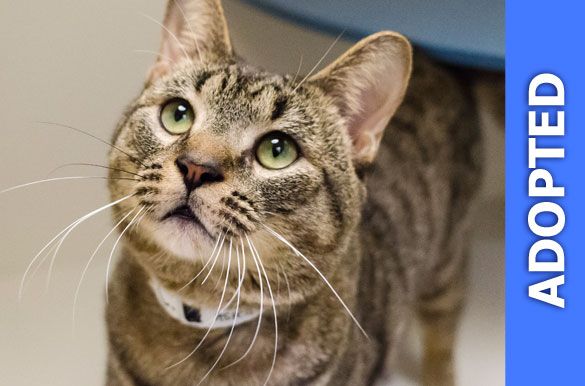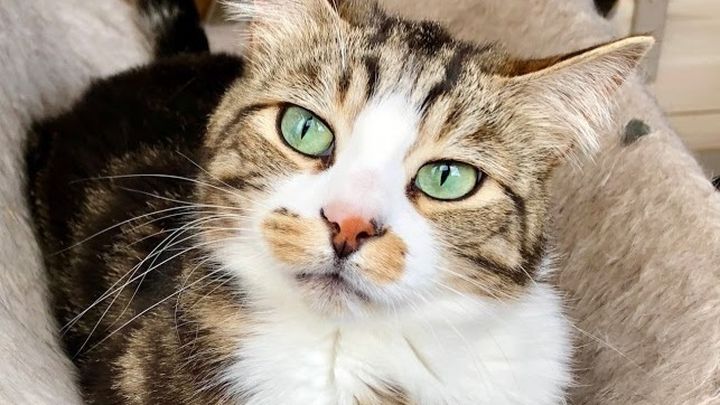fiv cat swollen lymph nodes
It causes acquired immune deficiency syndrome AIDS in cats resembling AIDS caused by the human immunodeficiency virus HIV in humans although FIV cannot transmit to humans. Bacterial infection Fungal infection Viral infection Parasitic disease Allergies Reactive Lymphoid Hyperplasia benign lymph node swelling Cancer of the lymph nodes or nearby organs Neoplastic Infiltration meningitis caused by cancer cells.
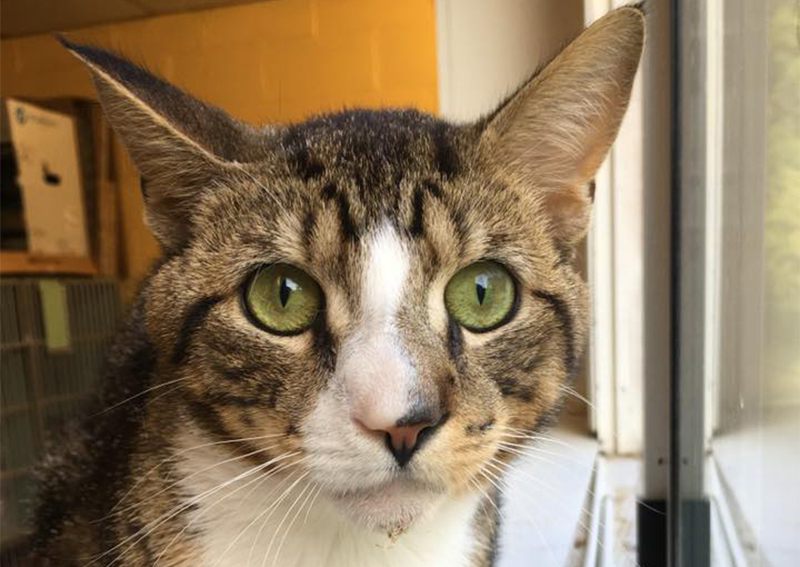
Winsted Hospital For Animals Barkhamsted Veterinarians
FIV is spread from cat to cat primarily by biting.
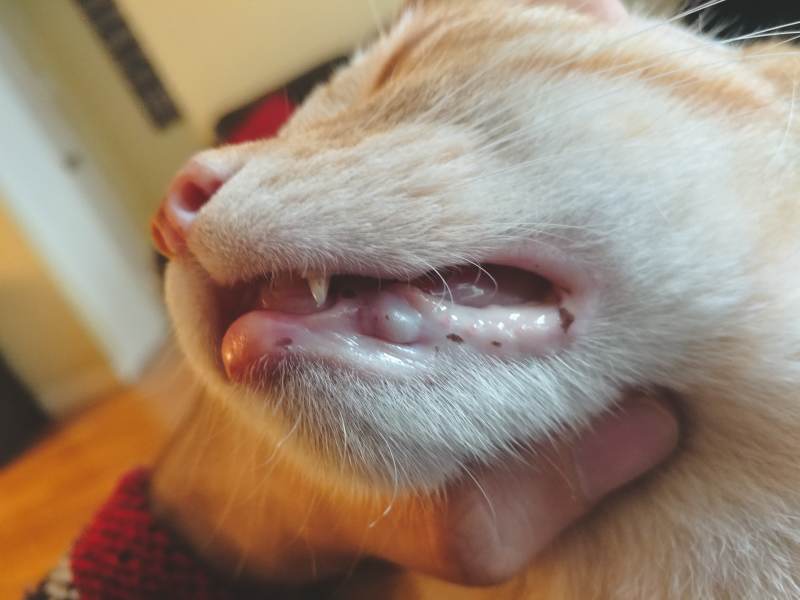
. Mild symptoms begin including lethargy anorexia fever and abnormal lymph nodes. Diseases of the eyes skin and respiratory system. In the first few weeks after an infection the virus may replicate and cause mild signs of disease such as swollen lymph nodes and fever but these typically go unnoticed.
At this time the virus is carried to lymph nodes where it reproduces in white blood cells known as T-lymphocytes. They will show no clinical signs. Fortunately they usually resolve spontaneously and is rarely severe.
The primary target of the virus is the cells of the immune system. Poor coat persistent fever weight loss diarrhea loss of appetite swollen lymph nodes seizures dental problems inflammation of the teeth and gums and chronic infections of the skin urinary tract bladder and respiratory system. If your cat has severely enlarged lymph nodes it may have trouble taking food into its mouth or have difficulty with breathing.
Signs of neurological disorders. The first stage of FIV infection also known as the initial or acute phase happens four to six weeks after the cat contracts the virus. Symptoms of FIV in cats can also include slow and steady weight loss.
Causes are as follows. Some of the most common signs seen in FIV infected cats are. It is a staged virus.
Fever and swollen lymph nodes may be the first signs noted in the early phase of infection but this can be transient and is easy to miss. At this stage cats are often entirely asymptomatic. However some people look to care for and adopt an FIV-positive cat.
Weight loss is common in cats with FIV often resulting in severe wasting late in the disease process. Some pets however progress into the later stages of the disease. The Initial Stage or the first stage of FIV occurs for 4-6 weeks after the cat catches the virus.
Supportive care will include veterinary monitoring parasite control keeping your cat indoors and a high-quality diet. During the latent stage the cats have no signs of sickness. The acute phase of infection generally occurs 1-3 months after infection.
A blood test to look for antibodies to FIV can confirm the diagnosis. At this juncture FIV can cause swollen lymph nodes and mild fever. Generally cats with swollen lymph nodes feel poorly and will likely be lethargic and depressed.
Inflammation in the mouth and gums. Because FIV weakens a cats immune system they become susceptible to other illnesses. Although the virus takes time to cause serious effects a cats immune system is severely impaired almost immediately.
Swollen nodes in the area near the groin inguinal may make defecation difficult for your cat. However the immune system is slowly being destroyed by FIV. FIV infects the white blood cells in your cats immune system that can cause a gradual decline in the cats immune functioning.
It is possible that the virus during the first few weeks following the infection will weaken the immune system. If the lymph nodes in your cats neck are enlarged swallowing may be painful leading to a. In North America a 2006 study of more than 18000 cats found that 25.
Cats can live normal and happy lives with FIV so this. Furthermore an FIV-infected cat may get sick and then get progressively worse or may only show signs of the virus sporadically. Severe wasting of the body can occur late in the.
In this stage the cats lymph nodes get swollen and the number of white blood cells decreases. Signs of FIV in cats is varied and can include. After infection with FIV the virus enters the cats bloodstream.
It is a highly infectious virus that interferes with the immune system of cats. Shortly after becoming infected a cat may have a fever or enlarged lymph nodes but these signs typically go away and may not return for months or years. Sadly many cat with feline immunodeficiency virus are put down because of how FIV ravages a felines body.
When signs of FIV do appear theyre due to secondary infections. Lymphoma can be present in many parts of the cats body as the lymphatic system is spread throughout many organs. However inflamed lymph nodes in cats are much more common due to severe illness.
There are three phases of infection with FIV - the acute phase the asymptomatic or latent phase and the progressive phase. Your cat may also feel a general malaise with a lack of appetite due to nausea and an urge to regurgitate. Disease present mostly in the peripheral lymph nodes which can be felt as enlarged lumps in the neck in front of the shoulder blades and behind the knees is much less common in cats than in dogs.
Their lymph nodes may also become swollen for several days to several weeks signaling that an infection is starting to take place. Neurological disease in some cats the virus can affect the brain. Swollen lymph nodes severe or minor can occur due to any illness in people and cats alike.
It can take years for signs to appear. Cat FIV infection generally has three main stages. FIV is a slow attacking virus.
If you notice any swelling on any or all of them be sure to take your cat to the veterinarian immediately. FIV is infectious and cats contract it when they come into contact with another infected. During this stage the cat may spend a few days going in and out of a fever.
3 Enlarged Lymph Nodes Feline Immunodeficiency Virus is a viral infection and leads to enlarged lymph nodes throughout the body. Gingivitis and stomatitis inflammation of the gums and mouth Chronic or recurrent respiratory ocular and intestinal disease. Feline immunodeficiency virus is a lentivirus or slow virus that affects the immune system of infected cats.
FIV is short for feline immunodeficiency virus. No noticeable symptoms for a variable length of time anywhere. Can I catch FIV from my cat.
Swollen lymph nodes weight loss poor coat condition pale gums chronic and recurrent infections. Consistent fever and vomiting. Chronic or recurrent infections in the eyes skin upper respiratory tract or bladder.
Feline immunodeficiency virus FIV is an infectious disease that attacks a cats immune system. Some cats will also have a fever diarrhea loss of appetite anemia lethargy and neutropenia in this early stage of FIV. In approximately four to six weeks after a feline has been infected some cats will have swollen lymph nodes and their white blood cell count will decline.
10 Symptoms Of Feline Immunodeficiency Virus Fiv

Lymph Node Inflammation Lymphadenitis In Cats Petmd

New Treatment For Cats With Feline Leukemia And Fiv

What You Need To Know About Your Cat S Lymph Nodes Catster Catsoftwitter Pethealth Catcancer Cat Health Pet Cancer Vet Technician
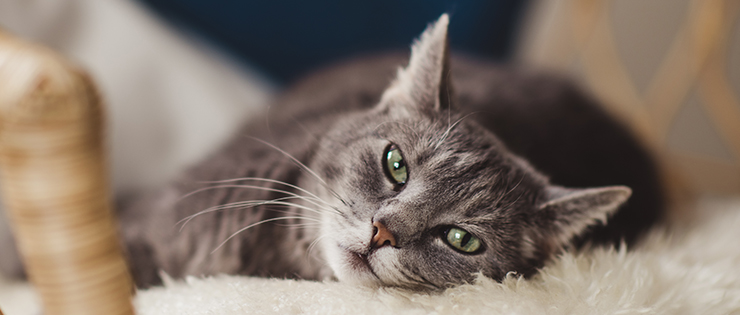
Feline Immunodeficiency Virus Fiv

Pin On Living With Fiv Is Possible

Feline Immunodeficiency Virus Fiv Stages Treatment Nasa Pet Hospital

Feline Immunodeficiency Virus Fiv The Brook Vet

Tell Us Your Purrfect Pals Cat S Story Purrfect Pals

Lymphadenopathy In Cats Lymph Node Inflammation

Feline Immunodeficiency Virus Fiv Mayne Vets
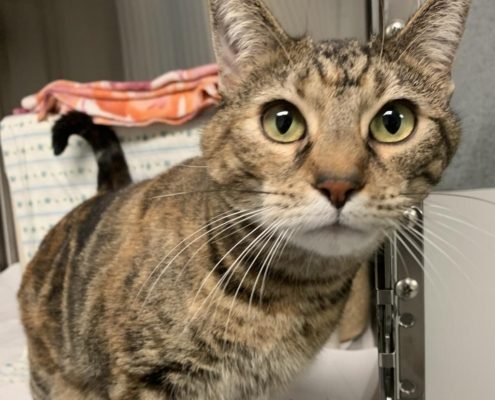
Rescue Cat Archives Blue Ridge Humane Society
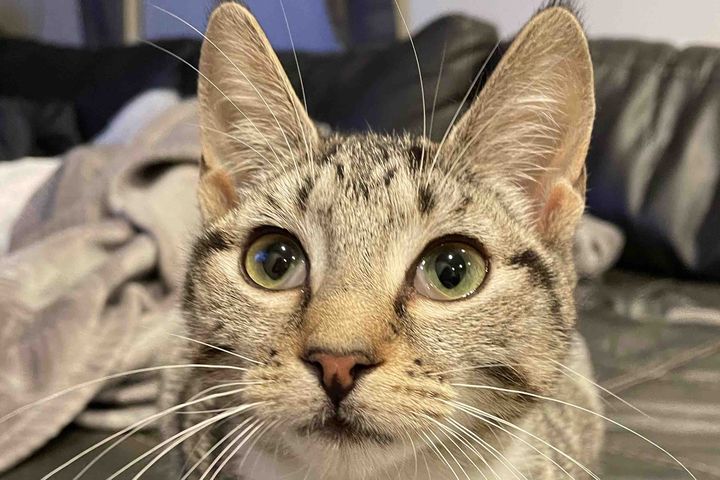
Fundraiser By Laura Lastella Save Fip Warrior Willow

